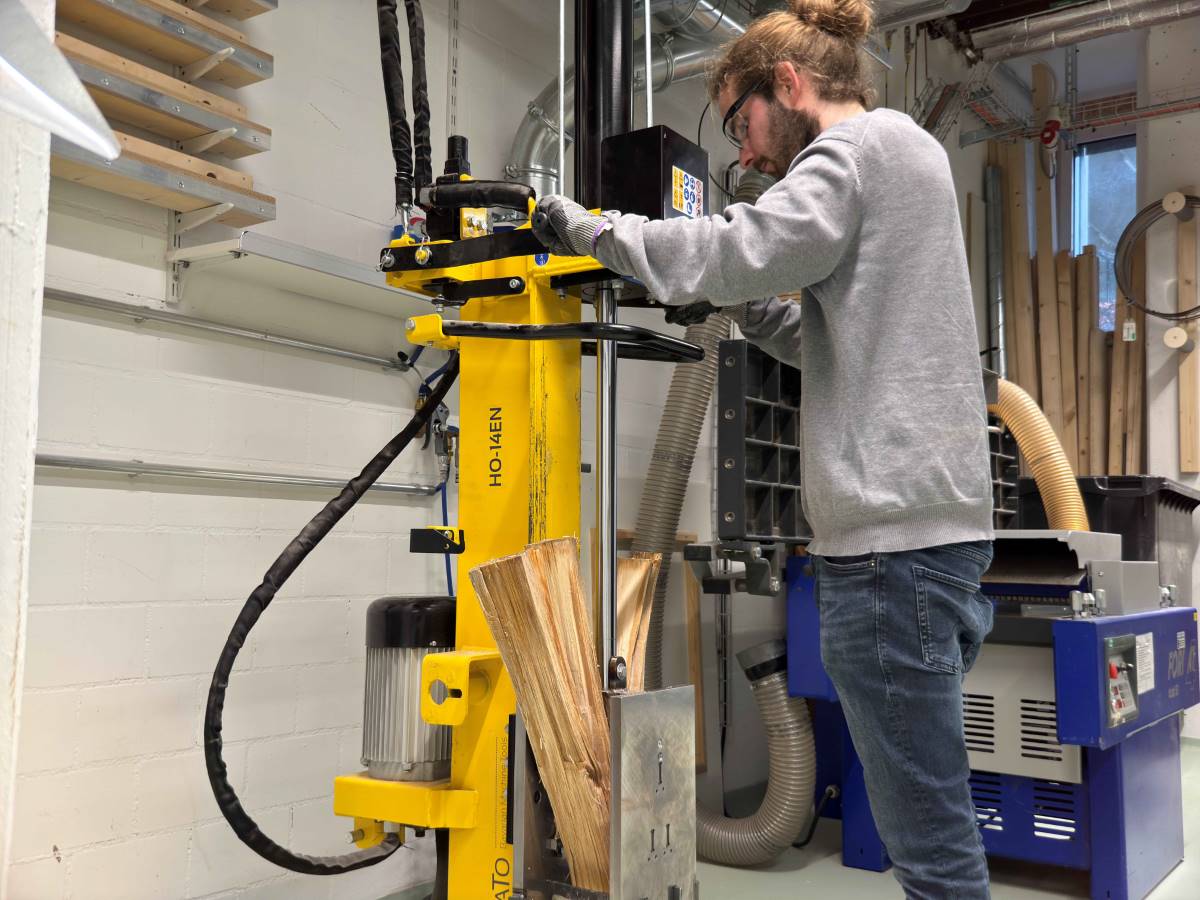New wooden panels inspired by shingles: a sustainable innovation
Post on: 14.04.2025

New wooden panels inspired by shingles: a sustainable innovation by Empa and ETH Zurich.
From traditional craftsmanship to advanced technology: the centuries-old production of wooden shingles, the typical Alpine shingles, has inspired researchers at Empa and ETH Zurich to develop a new production process for wood-based panels. more efficient and sustainable.
The innovation consists in the use of split wooden sticks, even of lower quality, optimized thanks to artificial intelligence, for the creation of resistant materials for load-bearing components in construction.
The project, part of the "Mainstreaming Wood Construction" (MainWood) initiative, represents a significant step forward in the enhancement of wood as a resource renewable, especially at a time when climate change is putting pressure on European forests and in particular spruce, which is threatened by long periods of drought.
Maximum yield with minimum waste
Unlike traditional industrial cutting, the wood splitting method, Borrowed from shingle processing, it allows a high-efficiency extraction of fibers, minimizing material waste and energy consumption. While Swiss sawmills achieve a yield of around 60%, the new process makes it possible to obtain multiple sticks with a single split thanks to a multi-blade head, adapted from a common chimney log splitter.
AI and intelligent wood sorting
One of the key elements of the project is the use of artificial intelligence. An automated vision system captures each wooden stick, analyzing its shape, size and quality through a neural network. "We can determine crucial properties such as stiffness, regardless of the type of wood or the regularity of the workpiece," explains Mark Schubert of Empa.
This approach also makes it possible to optimally use drought-resistant hardwoods, which are often underestimated and destined for combustion.
Towards a new generation of wood materials
The first Panels made in the laboratory, without any pre-sorting of the sticks, have already demonstrated excellent mechanical properties and promising production efficiency. "Our goal is to offer a concrete and sustainable alternative to traditional building materials," says Ingo Burgert, professor at ETH Zurich and project manager.
"Thanks to this process, we can use lower quality wood and less valuable species, contributing to a more circular and resilient wood supply chain.
The Center for Materials and Structures is born wooden
To support the development of these technologies, Empa and ETH Zurich will create a new "Centre for Timber Materials and Structures". The center will serve as a hub for advanced research and collaboration with the wood industry, with the aim of optimizing the entire value chain and promoting greater use of wood in construction, also as a means of long-term storage of CO₂.
A project that demonstrates how innovation and tradition can come together to address environmental challenges with concrete solutions, smart and sustainable.
Cookies & Privacy
Utilizziamo i cookie per offrirti la miglior esperienza possibile sul nostro sito Web.
Accetta e continua Continua senza accettare
Per maggiori informazioni leggi la nostra Privacy Policy





